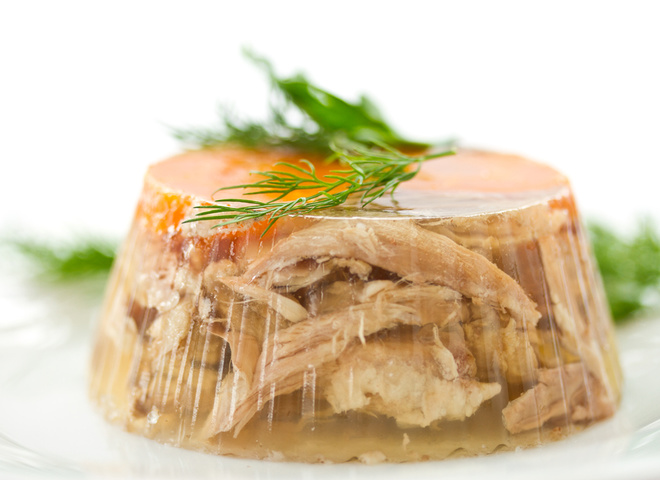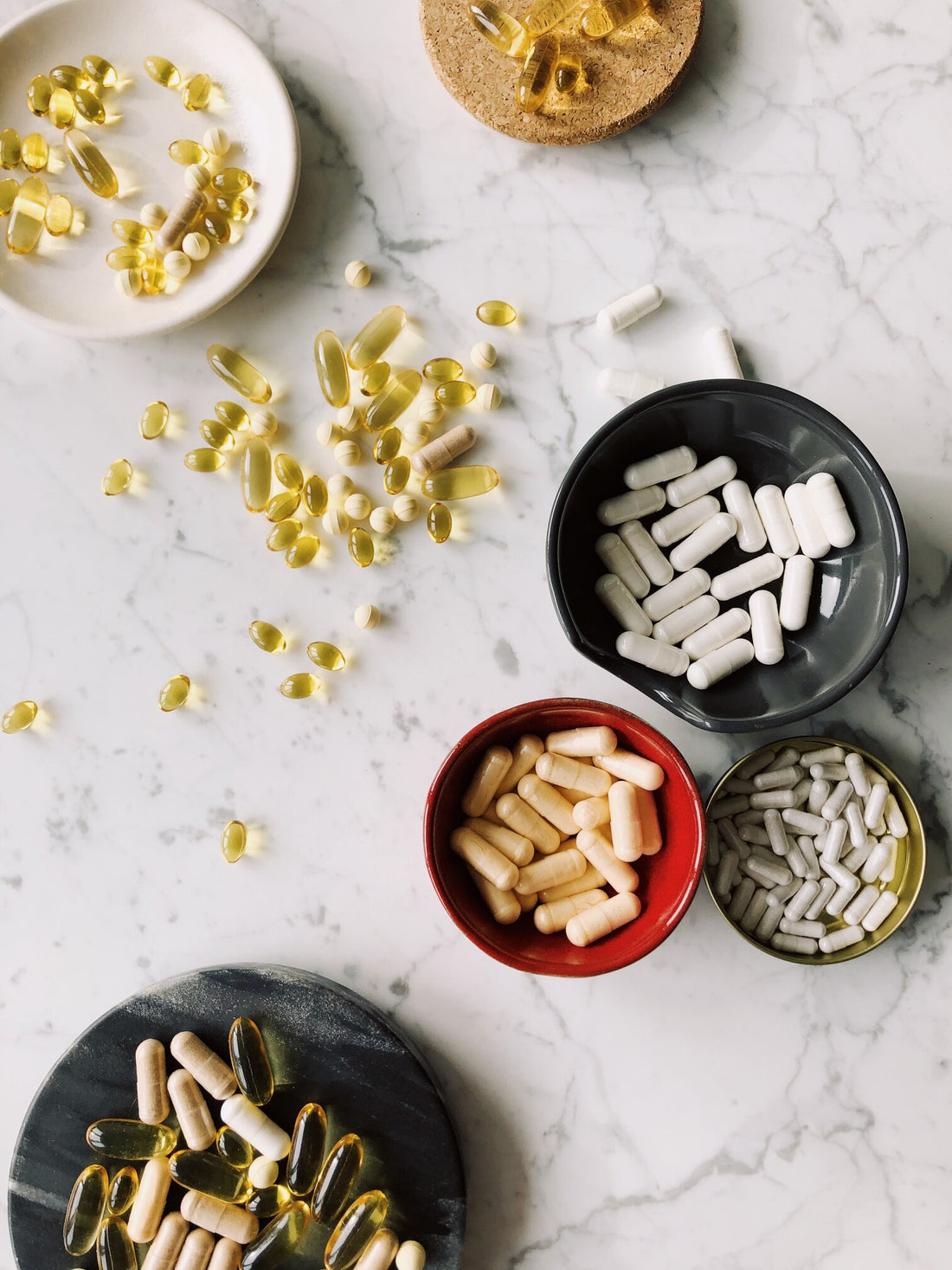Gelatin and Collagen : Meat Jelly

Growing up in an Eastern European culture, I was exposed to meat jelly. I’m not kidding you, the recipe is boiling pig feet and freezing the final mixture until it gelatinizes. What I didn’t know is it was loaded with collagen and natural gelatin that has been shown to be useful in injury prevention and rehabilitation.
But I digress…
Collagen has been all the rage lately, but what about its close cousin: gelatin?
What is gelatin?
Gelatin is a food derivative of collagen. It does not have optimal amino acid ratios for building muscle but has been shown to aid in joint health. To produce collagen peptides, gelatin is processed more aggressively using hydrolysis to form short-chain peptides (thus the term “hydrolyzed collagen peptides”). The gelatin on the other hand is when bones are boiled and turned into a powder using partial hydrolysis and leaving the amino acids in long-chain form.
Why vitamin C?
As I mentioned, collagen and gelatin are very similar and thus BOTH contain high amounts of proline and glycine. Both of these amino acids work synergistically with vitamin C to improve collagen synthesis[1]. Another really concentrated amino acid is glucosamine, which has been shown to promote the growth of new cartilage and cushion joints[2],[3]. By supplementing your collagen and gelatin with vitamin C, you are enhancing the body's ability to utilize these nutrients.
Let me repeat, the benefits of gelatin/collagen are due to the RATIOS of GLYCINE + PROLINE + GLUCOSAMINE in their amino acid profiles. At the end of the day, it’s just protein.
When should I take collagen or gelatin supplements?
For injury prevention and tissue repair, it has been shown that gelatin with vitamin C before exercising will improve natural collagen synthesis [4].
Is gelatin or collagen better than other types of protein?
NO! It is not better (…and it is not worse). As with everything, it depends on your goals.
I recommend someone who is suffering from an injury, autoimmune, or inflammatory disease consumes gelatin with vitamin C before exercising (or as a supplement).
I would not recommend someone looking to build muscle to consume gelatin/collagen in their post-workout shake.
REMEMBER:
Adequate nutrition together with exercise normally improves function of your musculoskeletal tissues (tendons, ligaments, cartilage, bone….all collagen rich matrixes). Only in a diseased state of nutritional or genetic insufficiency (or injury) would it be beneficial to consume this supplement. Whole foods first!
References:
[1]Paxton JZ, Grover LM, Baar K. Engineering an in vitro model of a functional ligament from bone to bone. Tissue Eng Part A 2010;16:3515–25.
[2]Hasty, K. A., Smith, G. N., Jr., & Kang, A. H. (1981). Studies on glycosaminoglycans of regenerating rabbit ear cartilage. Developmental Biology, 86(1), 198–205. https://doi.org/10.1016/0012-1606(81)90330-4
[3]Shibata T, Murakami K-I, Kubota E, Maeda H. Glycosaminoglycan components in temporomandibular joint synovial fluid as markers of joint pathology. J Oral Maxillofac Surg. 1998;56:209–213. doi: 10.1016/S0278-2391(98)90871-0.
[4]Shaw G, Lee-Barthel A, Ross ML, Wang B, Baar K. Vitamin C–enriched gelatin supplementation before intermittent activity augments collagen synthesis. The American Journal of Clinical Nutrition. 2017;105(1):136-143. doi:10.3945/ajcn.116.138594.

